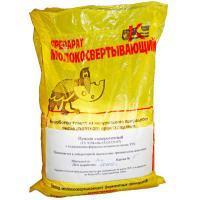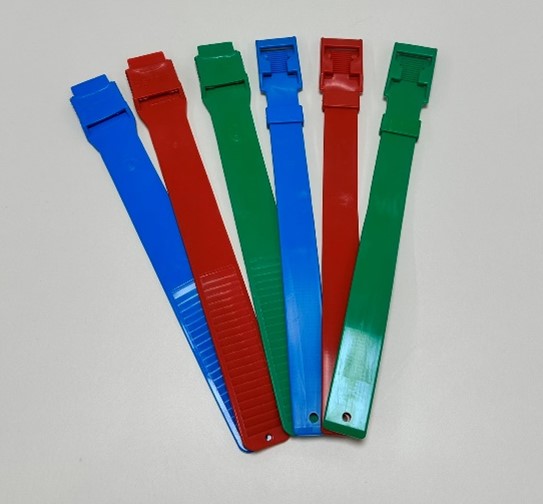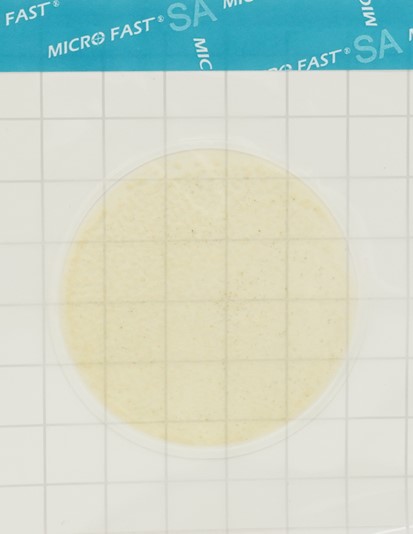"You are the greatest nation." Why Lukashenko aims to develop relations with Syria and Lebanon
ALEXANDER LUKASHENKO during a meeting on foreign trade activities in 2025 News topic Middle East... The interests of many states intersect in this region. Both those who are closer and those who are far away and even overseas. And in the modern world, God forbid you get into someone's zone of interests - such a mess will begin... The same Syria and Lebanon. These are by no means poor countries, with a rich history and serious prospects. Yes, not without internal contradictions. But when someone wants to benefit from this, expect a war. Belarus , in spite of everything, no matter what events take place in the Middle East, has never broken ties with friendly states. And moreover, it has always tried to contribute to their development. Why? We will talk about this now. In the new episode of the BELTA YouTube project "In Fact: Decisions of the First" we will tell you what benefits Belarus is looking for in Syria and Lebanon, and whether it is profitable, what message from Lukashenko the Minister of Foreign Affairs Maxim Ryzhenkov went there with and why, according to the President of Belarus, these states deserve a great future.
When Belarus began to develop relations with Lebanon
Let's turn to history. And let's start with Lebanon, which at one time was the financial and banking capital of the Middle East, for which it received the unofficial name "Middle Eastern Switzerland".
Belarus and Lebanon established diplomatic relations in the spring of 1996 and, without rushing or procrastinating, began to lay the foundation for future cooperation. In 1997-1998, the countries exchanged visits at the level of foreign ministers, and at the dawn of the new millennium, negotiations were held between the heads of government. In July 2004, the President of Lebanon visited Belarus. And even then, the words of Alexander Lukashenko ran through this visit like a red thread: there are no closed topics.
Alexander Lukashenko during a meeting with the President of Lebanon Emile Lahoud, July 2004
By the way, by that time, about half a thousand Lebanese specialists had received an education in Belarus. At that time, about 400 Lebanese were studying in Belarusian universities. And this was probably the highest figure among all foreign countries. And now, more than 600 students from Lebanon study in Belarus every year, and most of them return to their homeland to improve the socio-economic infrastructure of their country.
"We have just agreed with the President that the basis of our cooperation will be civilian goods. We must significantly increase trade turnover between the two states. But we also noted that there are no closed zones, no closed topics in the relations between our states. And if the Lebanese leadership is interested in the problems of military-technical cooperation, cooperation in the field of high technology, we will be very happy to support these areas. As for the Middle East issues, we have virtually no differences in assessments and views on the problems of the Middle East settlement. Without the participation of the United Nations, and active participation, it will be problematic to achieve peace in the Middle East," Alexander Lukashenko summed up the first talks with his counterpart. What Lukashenko's visit to Lebanon was memorable for
Less than a year later, in February 2005, the HEAD of state paid a return visit to Lebanon. The talks in Beirut were a continuation of the dialogue that began in the Belarusian capital. Alexander Lukashenko was met at the airport by the President of Lebanon personally. In Beirut, the parties agreed on further steps to develop cooperation in priority areas: industry, financial interbank cooperation, investments, science, education, and culture.
The Lebanese side, as reported by the press service of the Belarusian leader, showed interest in cooperation in the transport sector, in the field of electrical engineering and machine tool building, and the purchase of Belarusian agricultural machinery.
Alexander Lukashenko and Emile Lahoud, February 2005
"You always say that you have a small country and a small population, a small nation. I must say that you are the greatest nation, because you alone, independently defended your sovereignty and independence, and not just defended them, you liberated your land, but liberated your land so that it would remain within the ancient borders of your state. I believe that this is the greatest greatness of any nation. And by this you deserve not just respect. You deserve a great future," Alexander Lukashenko told journalists in Beirut.
According to him, Belarus and Lebanon have found many common interests, and in general, our country has a strong position in the Arab world, and support is felt. "And the Arab world has never let us down. Therefore, we come here with great pleasure, feeling this support, and it is always worth coming. We have no closed topics - from Lebanon, Syria, and so on," the President emphasized.
At that time, Lebanon was ready to become a gateway to the Middle East market for Belarus. Unfortunately, another war and the ensuing domestic political crisis reduced the intensity of Belarusian-Lebanese contacts. Most of the agreements were frozen for an indefinite period. And now the situation in the Middle East is far from ideal, but the Belarusian side continued and continues the dialogue with Lebanon.
What Ryzhenkov discussed with the Lebanese leadership
In February 2025, the Minister of Foreign Affairs of Belarus visited Lebanon. The Belarusian delegation included, among others, businessmen who are ready or already working with this country. Through Lebanon, they also develop cooperation with other states.
Maxim Ryzhenkov conveyed a message from the head of the Belarusian state to the President of Lebanon. Alexander Lukashenko congratulated his Lebanese counterpart on his appointment to this position and on his visit to Belarus. And this invitation was accepted. In support of its intentions, Belarus transferred 100 tons of powdered MILK and 10 ambulances to Lebanon.
Why the head of the Belarusian MFA flew to Syria
A little earlier, the head of the Belarusian Foreign Ministry visited Syria. Maxim Ryzhenkov flew to Damascus at the invitation of the Syrian side. Literally a week before his visit, Alexander Lukashenko said at a meeting that Syria was offering cooperation. "It asks that our officials come to talk and decide," the head of state did not hide.
Maxim Ryzhenkov discussed with the Syrian leadership "various areas of cooperation designed to facilitate the speedy restoration of Syria." The Minister presented the Syrian leader with certificates for 50 MAZ buses, donated to the Syrian people by the President and the people of Belarus. They will be produced and sent to Damascus in the coming months.
According to Syrian media, the head of the foreign policy department held another interesting meeting in Damascus - with the leadership of the General Intelligence Service. Intelligence, like diplomacy, loves silence. Therefore, we can only theorize about what topics were discussed at this meeting and what agreements were reached. We can, but we will not. What brings Belarus and Syria closer Belarus has been providing humanitarian aid to Syria since 2015. Over the past period, four consignments of cargo have been transferred to the Syrian side, including baby food , food, medicines, medical equipment, blankets, children's clothing and footwear, as well as MAZ equipment. In 2017-2024, the Zubrenok camp received more than 1.3 thousand children from Syria.
Alexander Lukashenko during a meeting with children from Syria, August 2017
"Belarusians have never been on the sidelines of the war in Syria. We have provided and continue to provide humanitarian support to the Syrian people, especially children, and a program for the rehabilitation of Syrian children in Belarus has been developed. We will continue to act in this direction," Alexander Lukashenko emphasized in November 2017 during a meeting with the President of the International Committee of the Red Cross.
Will Belarus and Syria Be Able to Reset Their Relations?
Recently, trade and economic cooperation between Belarus and Syria has been developing against the backdrop of difficult conditions. The destruction of transport and social infrastructure, the acute shortage of financial resources of the Syrian government and the decline in purchasing power of the population... In 2021, mutual trade turnover between the countries amounted to $8.2 million, and in the best years it exceeded $86 million. Belarus exported specific goods to Syria, dry milk , whey, medicines, tractors and truck tractors, and imported olive oil , fruits and vegetables, nuts, coffee .
DIRECTOR of the Center for International Studies of the Faculty of International Relations of BSU Nikita Belenchenko believes that much will depend on what domestic and foreign policy course the current government of Syria chooses.
"Are they able to find a compromise with other countries and are they able to find a compromise in the region," he said. "We strive to develop relations with all countries and regions. We are ready to provide all possible assistance in establishing peace in the region. I am not sure that we should take into account these conflicts, which have a chaotic order, and refuse this cooperation. On the contrary, we should support the political situation in these countries in every possible way. Our position, if we support both Syria and Lebanon, will subsequently find a response in other countries of the Middle East: Saudi Arabia, the United Arab Emirates, Oman."
If we wait for ideal conditions to enter these markets, no one will be waiting for us there. No one will even know about us. We will simply be late. Therefore, we are already there, and we should not leave under any circumstances, reminding others of ourselves in all available ways. For Belarusians, this is creation and exclusively constructive interaction.
When Belarus began to develop relations with Lebanon
Let's turn to history. And let's start with Lebanon, which at one time was the financial and banking capital of the Middle East, for which it received the unofficial name "Middle Eastern Switzerland".
Belarus and Lebanon established diplomatic relations in the spring of 1996 and, without rushing or procrastinating, began to lay the foundation for future cooperation. In 1997-1998, the countries exchanged visits at the level of foreign ministers, and at the dawn of the new millennium, negotiations were held between the heads of government. In July 2004, the President of Lebanon visited Belarus. And even then, the words of Alexander Lukashenko ran through this visit like a red thread: there are no closed topics.
Alexander Lukashenko during a meeting with the President of Lebanon Emile Lahoud, July 2004
By the way, by that time, about half a thousand Lebanese specialists had received an education in Belarus. At that time, about 400 Lebanese were studying in Belarusian universities. And this was probably the highest figure among all foreign countries. And now, more than 600 students from Lebanon study in Belarus every year, and most of them return to their homeland to improve the socio-economic infrastructure of their country.
"We have just agreed with the President that the basis of our cooperation will be civilian goods. We must significantly increase trade turnover between the two states. But we also noted that there are no closed zones, no closed topics in the relations between our states. And if the Lebanese leadership is interested in the problems of military-technical cooperation, cooperation in the field of high technology, we will be very happy to support these areas. As for the Middle East issues, we have virtually no differences in assessments and views on the problems of the Middle East settlement. Without the participation of the United Nations, and active participation, it will be problematic to achieve peace in the Middle East," Alexander Lukashenko summed up the first talks with his counterpart. What Lukashenko's visit to Lebanon was memorable for
Less than a year later, in February 2005, the HEAD of state paid a return visit to Lebanon. The talks in Beirut were a continuation of the dialogue that began in the Belarusian capital. Alexander Lukashenko was met at the airport by the President of Lebanon personally. In Beirut, the parties agreed on further steps to develop cooperation in priority areas: industry, financial interbank cooperation, investments, science, education, and culture.
The Lebanese side, as reported by the press service of the Belarusian leader, showed interest in cooperation in the transport sector, in the field of electrical engineering and machine tool building, and the purchase of Belarusian agricultural machinery.
Alexander Lukashenko and Emile Lahoud, February 2005
"You always say that you have a small country and a small population, a small nation. I must say that you are the greatest nation, because you alone, independently defended your sovereignty and independence, and not just defended them, you liberated your land, but liberated your land so that it would remain within the ancient borders of your state. I believe that this is the greatest greatness of any nation. And by this you deserve not just respect. You deserve a great future," Alexander Lukashenko told journalists in Beirut.
According to him, Belarus and Lebanon have found many common interests, and in general, our country has a strong position in the Arab world, and support is felt. "And the Arab world has never let us down. Therefore, we come here with great pleasure, feeling this support, and it is always worth coming. We have no closed topics - from Lebanon, Syria, and so on," the President emphasized.
At that time, Lebanon was ready to become a gateway to the Middle East market for Belarus. Unfortunately, another war and the ensuing domestic political crisis reduced the intensity of Belarusian-Lebanese contacts. Most of the agreements were frozen for an indefinite period. And now the situation in the Middle East is far from ideal, but the Belarusian side continued and continues the dialogue with Lebanon.
What Ryzhenkov discussed with the Lebanese leadership
In February 2025, the Minister of Foreign Affairs of Belarus visited Lebanon. The Belarusian delegation included, among others, businessmen who are ready or already working with this country. Through Lebanon, they also develop cooperation with other states.
Maxim Ryzhenkov conveyed a message from the head of the Belarusian state to the President of Lebanon. Alexander Lukashenko congratulated his Lebanese counterpart on his appointment to this position and on his visit to Belarus. And this invitation was accepted. In support of its intentions, Belarus transferred 100 tons of powdered MILK and 10 ambulances to Lebanon.
Why the head of the Belarusian MFA flew to Syria
A little earlier, the head of the Belarusian Foreign Ministry visited Syria. Maxim Ryzhenkov flew to Damascus at the invitation of the Syrian side. Literally a week before his visit, Alexander Lukashenko said at a meeting that Syria was offering cooperation. "It asks that our officials come to talk and decide," the head of state did not hide.
Maxim Ryzhenkov discussed with the Syrian leadership "various areas of cooperation designed to facilitate the speedy restoration of Syria." The Minister presented the Syrian leader with certificates for 50 MAZ buses, donated to the Syrian people by the President and the people of Belarus. They will be produced and sent to Damascus in the coming months.
According to Syrian media, the head of the foreign policy department held another interesting meeting in Damascus - with the leadership of the General Intelligence Service. Intelligence, like diplomacy, loves silence. Therefore, we can only theorize about what topics were discussed at this meeting and what agreements were reached. We can, but we will not. What brings Belarus and Syria closer Belarus has been providing humanitarian aid to Syria since 2015. Over the past period, four consignments of cargo have been transferred to the Syrian side, including baby food , food, medicines, medical equipment, blankets, children's clothing and footwear, as well as MAZ equipment. In 2017-2024, the Zubrenok camp received more than 1.3 thousand children from Syria.
Alexander Lukashenko during a meeting with children from Syria, August 2017
"Belarusians have never been on the sidelines of the war in Syria. We have provided and continue to provide humanitarian support to the Syrian people, especially children, and a program for the rehabilitation of Syrian children in Belarus has been developed. We will continue to act in this direction," Alexander Lukashenko emphasized in November 2017 during a meeting with the President of the International Committee of the Red Cross.
Will Belarus and Syria Be Able to Reset Their Relations?
Recently, trade and economic cooperation between Belarus and Syria has been developing against the backdrop of difficult conditions. The destruction of transport and social infrastructure, the acute shortage of financial resources of the Syrian government and the decline in purchasing power of the population... In 2021, mutual trade turnover between the countries amounted to $8.2 million, and in the best years it exceeded $86 million. Belarus exported specific goods to Syria, dry milk , whey, medicines, tractors and truck tractors, and imported olive oil , fruits and vegetables, nuts, coffee .
DIRECTOR of the Center for International Studies of the Faculty of International Relations of BSU Nikita Belenchenko believes that much will depend on what domestic and foreign policy course the current government of Syria chooses.
"Are they able to find a compromise with other countries and are they able to find a compromise in the region," he said. "We strive to develop relations with all countries and regions. We are ready to provide all possible assistance in establishing peace in the region. I am not sure that we should take into account these conflicts, which have a chaotic order, and refuse this cooperation. On the contrary, we should support the political situation in these countries in every possible way. Our position, if we support both Syria and Lebanon, will subsequently find a response in other countries of the Middle East: Saudi Arabia, the United Arab Emirates, Oman."
If we wait for ideal conditions to enter these markets, no one will be waiting for us there. No one will even know about us. We will simply be late. Therefore, we are already there, and we should not leave under any circumstances, reminding others of ourselves in all available ways. For Belarusians, this is creation and exclusively constructive interaction.



























































